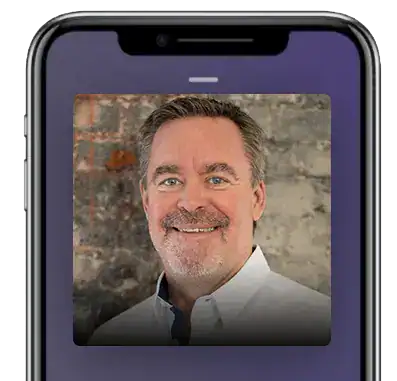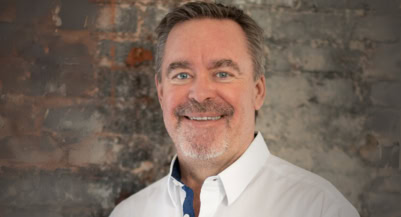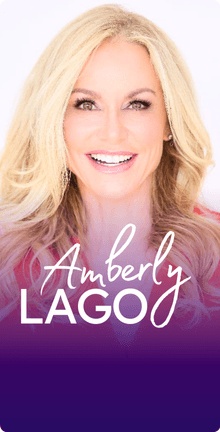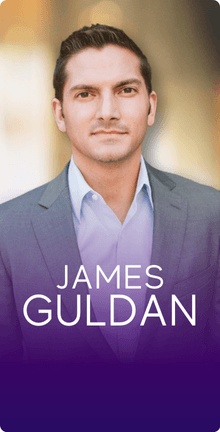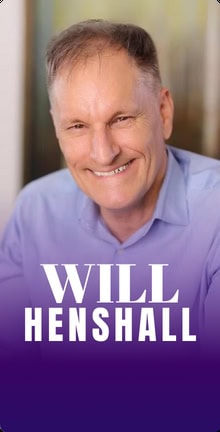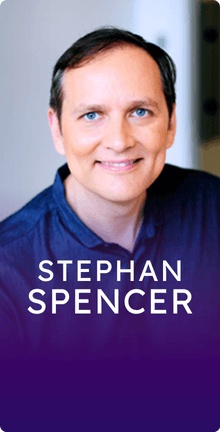In this Episode
- [02:56]John Ratliff reflects on his entrepreneurial journey, beginning with a commission-only sales job in the mid-90s, expanding into wireless retail, and ultimately launching a call center company.
- [06:45]John examines the influence of AI on the call center industry, highlighting that the core objective remains unchanged despite evolving technologies.
- [11:29]Stephan and John explore the idea that life is divinely orchestrated and stress the value of finding good in every experience.
- [14:15]John reveals his personal practice of asking, “What’s the lesson?” as a way to extract meaning from life’s challenges.
- [16:47]John introduces the OODA loop—a decision-making framework from the US Air Force—and illustrates how it applies to both business and personal growth.
- [22:04]John recounts his health scare, including a diagnosis of irreversible liver cirrhosis, and his pivotal choice to quit drinking.
- [41:03]John opens up about his daughter’s mental health journey, sharing her battle with depression and Lyme disease.
- [57:17]John emphasizes the power of surrounding oneself with entrepreneurs who approach life with abundance and optimism.
John, it’s so great to have you on the show.
Great to be back.
You were on Marketing Speak, and now you’re on Get Yourself Optimized. We’re going to have a different kind of conversation than we had on Marketing Speak. We were discussing EO and EOS, and how to build a business that is saleable – a lot of really cool business-related topics.
We’re going to get more into the personal development side of things, and how to grow and evolve, how to get life lessons in every interaction, every challenge, etc. So, first of all, I’d love for you to share a little bit of your hero’s journey, a story of how you got from the very beginning to where you are now.
I don’t know if it’s a hero’s journey, other than a slog. That’s a joke. I’m just teasing. I always knew I wanted to be an entrepreneur, even from a young age. I finished college, came home, kind of spent the summer with a buddy of mine, who had also just finished his first year in law school, and he went back to law school in September, and I was kind of looking around and wasn’t really doing anything. My parents sort of said, “You gonna work? What’s your plan?”
I ended up in a commission-only sales job back in the mid-90s, when this was a huge thing. I was selling wireless cell phones that the big, giant ones had once sat on the front seat of your car in a giant bag. I was successful doing that for about six months, and then I realized I was an entrepreneur and had the bug. I convinced the wireless carrier to actually give me my own license and let me open my own stores. I left the company I was working for.
Entrepreneurs are often wired for depression—we’re constantly dissatisfied with the status quo, which is what drives us to build something better. Share on XI opened a couple of wireless stores, ultimately sold them back to the guy I worked for originally, and then, with the proceeds from that, I started a call center company. An old-fashioned, traditional answering service-style call center. It was just me at the beginning. I was working 24/7, 365 days a year. I’d sleep in between calls, which was crazy. It really took about four or five years to break even, and then I made a little bit of profit.
I had a buddy of mine who was a CPA who had done a bunch of business debt, borrowing for other companies, doing acquisitions. He said, “Hey, have you ever thought about buying other companies?” We didn’t have any cash, and I didn’t have any wherewithal to buy other companies, let alone run the one that I already had. But he convinced me that that was probably a good idea.
We got a banker that bought in; it’s a longer story, but we bought twenty-four call center companies between 2003 and 2012, and then had a buyer come along in 2011 we ultimately sold to them in 2012 for a strategic multiple, probably four or five times what I was paying as a buyer on the buy side. It’s a really great outcome, with tons of great arbitrage, and it’s an amazing story.
And then, the investment bank we used to sell the company, I ended up partnering with them, and they helped with approximately 40 or 50 transactions involving other entrepreneurs through them. So upset at a lot of seats at the table in the M&A process as a buyer, as a seller, as an advisor, short of having a law degree, kind of as the attorney as well, getting heavily involved in the legal side of negotiating.
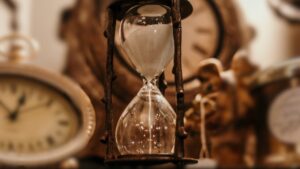
So, I feel like that’s all sort of prepared me to have a really broad perspective on what we like to think of as the full circle journey of the entrepreneur. So, from start up to scale up to contemplate an exit to exit to even post exit. “What am I going to do next? I just sold the company, and now I have the paradox of unlimited time and choice, and what am I going to do next?” We actually help entrepreneurs navigate that journey now through a company called align5.
Do you think that you’d be able to pull off what you pulled off back in 2005, 2010, 2012 time frame, buying a bunch of companies and then creating a roll up and then selling that today and crazy times we’re living in with AI changing everything seems like a new announcement happens every week that is mind-blowing?
It’s interesting. On that front, I was actually asked to come back and speak to the trade association users group for the industry I used to be in, which is a segment of the call center space. And as you can imagine, there’s a lot of concern in that world about whether we’re going to get disintermediated, and whether we have to compete with AI. What’s that all going to mean? I am pretty adamant in my thought process around this that it’s not about how the job gets done, but about the job to be done.
If you think again about the call center world, you have an end user who has some need, whether it’s to buy, fix, solve, or ask a question, and they need to get connected to the proper resource to basically meet their need. Today, we do that through a combination of technology and people. Years ago, we did it with just people and a little bit of technology. In the future, we’ll probably do it with a lot of technology and a little bit of people.
On the asset side of the world, customers are a valuable list or asset that’s not going away.
But the need doesn’t go away when I look at where the puck’s going, the Wayne Gretzky quote. I really think about the job to be done, not necessarily how the job is getting done. I believe if you’re a call center operator, there’s never been a better time than right now to be in that space and insert your industry here for call center, because the jobs to be done are gonna still exist. You still need to connect the person with the need and the solution.
Essentially, what will happen is that the cost to solve those problems will go down, so hopefully, there will be either more margin or fewer human capital issues, or whatever the side benefits are. What I told everyone in that industry, and what I’m really bullish about, is that they did the hard part: creating the 500, 1000, or 5,000 customers who trust them today to meet those needs and do the job that needs to be done. They’ve already built the trust, which is the hard part.
If they can bring a more technology-based solution or a novel set of new ideas and solutions, they already have the customer relationships. We always think about companies as a collection of assets and capabilities. On the asset side of the world, customers are a valuable list or asset that’s not going away. What’s getting amplified are their capabilities. The ability to serve those customers may be in more elegant, less expensive, or more efficient ways; however, they still maintain customer relationships until the customers have lost their trust, and those customers then go elsewhere.
So, for me, as companies evolve in this new technology-based world, they should be thinking about how to maintain and possibly even elevate customer trust by serving them in better, more efficient, and less expensive ways. Not focusing on someone else is going to serve them better than we can. That’s going to be a really, really long time, I think, before all human interaction. There was a famous video from Clayton Christensen at Harvard Business Strategy. The video is called The Job of a Milkshake.
It was essentially about a customer discovery exercise that they did for McDonald’s and how they found out that half of all the McDonald’s milkshakes are bought before 8 AM. Commuters with a long drive to work who want something to do on the way to work are buying McDonald’s milkshakes. They had no idea that they were selling that many at that time of day.
But he talked about the competitor to the milkshake for McDonald’s not being a Burger King milkshake or a Wendy’s frosty, but rather bananas, donuts, a Snickers bar, cereal, and anything else you might eat on a commute to work, and it sort of changed how they thought about it. The job of the milkshake was to entertain the commuter. It’s really well done, it’s a four-minute video. It’s an easy watch.
I always think about what the job is to be done, and how we deliver it is just the vehicle. AI is going to amplify our capability around delivering for customers. And I get it; certain industries are going to be affected, and jobs are going to be lost, and people are going to get disintermediated. But if we change our mindset a little bit, it’s about connecting a need with a want or a need with a capability to solve it, and how we can become more efficient at doing that. So, I’m optimistic, contrarian, and all that.
I’m optimistic too, for maybe a little different reason than what you were describing. I think everything is divinely orchestrated. It comes from God, and God is only benevolent, and thus, everything is for the good, without exception, even if we can’t see it at the moment.
AI is going to amplify our capability around delivering for customers.
Like, if we zoom out far enough across multiple lifetimes, across multiple universes and so forth, and go outside of time and space into our eternal nature, then we can see like, “Oh, okay, this hardship that I went through actually was for my highest good because it made me a more resilient, anti-fragile person, or it made me more empathetic, or more of a contributor to society, instead of kind of passively, just writing a check to charity every so often, and that was it.”
It’s not easy to go through some of these challenges. One challenge we were just having during this recording was that I’m in Tel Aviv, and sirens went off, and I have one minute to get to the safe room. I had to interrupt in the middle of your wonderful answer and say, “I’m sorry, I have to go to the safe room.”
But everything is a gift, everything is a blessing. Everything is for the good. You just have to see the good in it. That actually brings me to another point. I wanted to bring up what we discussed before the recording, and that is the one question you always ask yourself.
It’s ironic. Well, it’s not ironic at all. It’s like you said, divinely intended. But when you can look at everything in life as a gift, and you may not understand, even in this entire lifetime, why it was a gift, but if you believe that, to your point, the universe or the divine or your spiritual beliefs bring you exactly what you need, when you need it. It’s your job to interpret it any way that you choose.
And if you choose to interpret it as a gift, then there is a gift in everything. It does kind of change the perspective. I think the trouble is that it takes time to go through some circumstances and situations. I love the reticular activating system in our brain, which is what we choose to focus on, is what we tend to see.
What we choose to focus on is what we tend to see.
If you choose to focus on finding the gift in everything, you’ll tend to see those things. If you choose to find the struggle in everything, you’ll see the struggle in everything. If you have to go through the circumstance anyway, why not try to find the positive and the gift in it? And to your point, not always easy to talk about on a podcast, but not always easy in real life, in practice, but it’s like anything, the more that you practice it, the more you rewire your mind. I think the easier it is to see the benefits in different circumstances.
So that one question you always ask yourself is, “What’s the lesson?”
What’s the lesson? Why was I exposed to this at this point? What am I supposed to learn from this?
A similar take on that question that I learned from my Kabbalah teacher is, “Why is this in my movie?” I like that because it’s a reminder that this is all illusion, and not to take it so seriously, even though it seems quite dire at the time and you’re just fully absorbed in the circumstances of it, it helps you to set your perspective a little outside of your normal and then to see that there’s a purpose beyond what might be obvious.
Maybe there is no obvious lesson, but when you open yourself up to, “This was placed in my movie,” just like whatever movie is being filmed, the movie set is very precisely set up. Every prop is placed there with precision and intentionality. Nothing just randomly shows up. If it’s a scene of a bedroom and there’s a side table, a table lamp, and a book on the table, these things are placed there with precision.
That’s interesting. I love to hear that you have a Kabbalah teacher too. I have several friends that are kind of exploring that as well, and I do think it gives you kind of an interesting frame around this idea that, does it really matter the way we think that it matters, or is it there to serve a purpose for us that we don’t quite understand yet?
It’s not about how the job gets done—it’s about the job to be done. Share on XA quote—I forget who—but it’s like, “You can’t connect the dots except looking backwards.”
You only see the patterns in reverse. Interesting.
Which brings me to another point that I wanted to bring up at some point in this conversation: your incredible ability for pattern recognition. Tony Robbins talks about pattern recognition being so important, and then the next level of pattern recognition in his framework is pattern utilization. It’s not enough to just recognize the pattern.
Certainly, it puts you at a leg up kind of position against all the competitors and everyone else you’re competing with. But it is not sufficient. You need to utilize the pattern and even preempt the next iteration of it. If you see a fractal, look for the next iteration before everyone else can see it.
Yes, we talk about the OODA loop, which is actually from the US Air Force. A fighter pilot originally came up with it. However, the concept is that everything happens within a kind of feedback loop in the world. If you start to understand the pattern of those feedback loops, you can get inside someone else’s feedback loop or a situation’s loop. The faster you can iterate in there, the more likely you are to end up with a competitive advantage or insight, or whatever it is.
The first O is observed. You just want to take as much of all the data that you can, but the really important key is to do so without bias. Everything we filter through a lens in the world tends to be filtered through our bias. We don’t necessarily make optimal decisions, because we’ve biases in how we filter information. In the OODA approach, you have to flush all that bias. Take in all the data, and again, probably not the best example, but think about the fighter pilot.
Where’s my wingman? Where’s the opponent? Where’s the sun? Where are the clouds? Is it windy? Is the wind behind me or in front of me? All the parameters, but no bias about what any of it means, until you move to orientation, which is the second O. Okay, now I’ve taken all the data, where do I fit in this pattern? What’s my particular role? What skills do I have? What skills do I think the opponent has?
Now, bring all your biases to bear, bring all your past kind of pattern recognition, get rid of the beginner’s mind, and now bring the master’s mind. And then decide on what you’re going to do. Are you going to climb? Are you going to descend? Are you going to fire? Whatever it is. Then, immediately take action. As soon as you take action, go back to observation mode again. Flush all your biases. Don’t admire your shot.
Don’t stand there like a basketball player who shoots a three-pointer that the good players admire the ball in the air. The great players don’t care where the ball is. They’re immediately back to observation mode, flushed all their biases, and they’re trying to figure out what to do next. I think what’s interesting about all that is that the universe kind of works that way as well. But where we get tripped up, I think, as humans, is that we assign our own time elements to things.
Everything we filter through a lens in the world tends to be filtered through our bias. We don’t necessarily make optimal decisions, because we’ve biases in how we filter information.
We talk about karma, and you can call karma a million different things. The universe always delivers, but it delivers in its own time, not in our version of time. Many times when we talk about what the gift is, we’re time-constrained. We want to see it right away. We go through a hard situation, and we get onto the other side of it, and we immediately want to know, “Okay, what was the good in that? Why did that serve me?”
Well, that lesson might not get revealed right away. It might not get revealed in our entire lifetime, but we want to assign this artificial construct of time to the universe and its mysterious ability to deliver on our behalf. So, I think that’s where. Tony Robbins says, “Play with the patterns and use them to your benefit.” I think it’s always time that gets us tripped up.
If you think about time as part of the illusion, that means that you can be outside of time, and your eternal self, your higher self, is actually outside of time. That means that you can imagine communicating with your higher self, who sees where things are heading, because it is outside of time. You can see that it’s all going to work out in the end, and then you get this reassurance and certainty and gratitude for what you’re going through, even though it’s tough at the time.
“Everything in life is a gift,” as a mantra, and again, easy to say, not easy to practice, but everything in life is a gift. It’s certainly a lesson I’ve tried to impart to my kids.
Then, a corollary to that, I learned from a rabbi, randomly, but nothing’s random, of course. My wife and I went to a Shabbat dinner. We were invited to this rabbi’s house for a Friday night dinner, and he was escorting us out at the end of the night. He shared this little piece of wisdom that really stuck with me, and that is, “Everything is a blessing.” It’s just a question of whether that blessing has been revealed yet or not. So either it’s a revealed blessing, an obvious blessing, or it’s an unrevealed blessing.
I like that.
The universe always delivers, but it delivers in its own time, not in our version of time.
So, if you want what most people consider to be blessings, pray for more revealed blessings. Because when you just pray for blessings, you get the storms too, because those are blessings that help you to grow. You might not want those, though, at the time.
A subtle but important distinction.
Speaking of these storms and challenges, you had a health challenge we were kind of talking a little bit about before the recording. I’d love to go into that a bit, and some of the solutions, takeaways and the gifts that came from that.
For sure. In a long sequence of events, I think that led to this. But I believe incredibly strongly in the idea that energy that we hold inside positive and negative takes on a physical form, I think, inside of us, and that’s certainly not a new or revolutionary idea that many have talked about. I also believe that certain emotions get held in certain parts of the body, certain organs, depending on who you believe or listen to.
One of the most prevalent ones is that we tend to hold anger in our abdomen, particularly in the stomach and liver. I wasn’t feeling well, probably about three years ago now, and was nauseous in the mornings, just off overall. I was going through some tough stuff and was in a lower vibration from an overall mindset standpoint. I was a frequent drinker, not a super heavy drinker, but it was daily, a couple of glasses of wine or a couple of beers.
Never really hard alcohol or anything, but my fair share of beer and wine and all those things combined with my low health. It was physical, and I got some blood work back, and my concierge family doctor said, “Hey, you know, we’ve seen some liver trends with you over the last couple of years that aren’t great. I ran a new test, and it came back really bad. I think it might be time to see a specialist and maybe take more active intervention in this.”

So, long story short, within the next nine months, I stopped drinking alcohol. I was already probably four weeks into a dry February moment, so I’m like, “Wow, I’ll just stop. That’s easy.” I’ve already stopped. So see the specialist, no alcohol for eight or nine months, whatever it was, get the first MRI, and the results came back significantly, that irreversible liver damage, cirrhosis, I’ll just say it was the diagnosis.
And of course, my Western medicine liver guy said, “Well, you’ll never fix it, but you can manage it.” I said, “Are you sure I’ll never fix it? Because I don’t buy that.” He goes, “Nah, I’m 42 years, no one’s ever reversed cirrhosis on my watch.” I said, “Well, maybe I’ll be the first.” He laughed and said, “Yeah, I’ve heard many people say that.” So, I left.
That’s not a funny joke. You’re supposedly a trusted physician to laugh at.
And that’s pretty much what it was. But I’m pretty competitive. was not well for certain, but I wasn’t totally sold that it was as bad as the MRI and all the blood work showed it to be, although, in hindsight, it probably was that bad. I had a friend, her name’s Jackie, who probably five different times suggested that I listen to, not read, but listen to Letting Go by David Hawkins, and I’d blown her off the first four times.
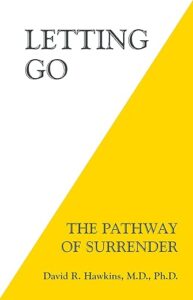
So right after this diagnosis, we happened to be at Ben Richter, who, you may know, is a mutual friend of lots of ours. At his birthday, Jackie was there, and we were having a casual conversation. She said, “You still haven’t listened to the book, have you?” I said, “No, not yet.” I was kind of telling her what was going on. She said, “Why don’t you listen to it and then let’s have a conversation?” So I did, and it’s a 12-hour Audible.
I can boil it down to one sentence: Don’t hold on to negative emotions. But there are lots of anecdotes and stories and techniques and why it works, and all the things. So I started practicing the letting-go technique, and let go of the anger and let go of all this negative stuff I was holding on to. And then I figured, “Why not take it a step further? I’ll try and do some healing work.”
I’ve always kind of had this sense that I’d maybe experience energy at a little more significant level than most people, but I’ve never done any formal training with it or anything. It’s just been a casual thing I’ve noticed over time. So I start doing what I guess I would describe as a bastardized version of Reiki. I don’t even know what Reiki really is, but was doing something to myself.
You may not know what Reiki is, but your higher self sure did.
I start doing visualizations. Imagine golden light around your heart and push it into your liver. Using my hands to do whatever the heck they were doing, and it was kind of like, I wasn’t sure it was working or not, but I was starting to feel a little bit better. I was vibrating, certainly at a higher level, and the anger was starting to dissipate. I was still not sold on the idea that this was a permanent thing. In fact, I knew it wasn’t.
So it was about six months later, after the MRI and the diagnosis and the event in the office, you’ll never cure this. You just have to manage it. It was one o’clock in the morning, a Friday night into Saturday morning, and I was actually in kind of a more sort of energetic and giddy state. I couldn’t fall asleep, and I wasn’t sure why, but I wasn’t like, wasn’t bothering me that I couldn’t fall asleep, and I was kind of doing the technique stuff.
The faster you can get inside someone else’s feedback loop, the more insight and advantage you gain. Share on XAnd I was sort of laughing at myself, like, “What are you doing? This is ridiculous.” As I did that, I’m like, “But why not? What do I have to lose?” I distinctly remember I kind of, like, did something sort of with my hand over top of where, supposedly, I had cirrhosis. If you’ve ever had, like a blood blister, or like a blister on your hand, and you feel it pop, and all of a sudden it’s like, “Oh, what a relief that blister popped.” I literally felt my liver pop.
Wow.
That’s like, “What the heck was that?” But instantly I was consumed by—it wasn’t a thought, it wasn’t an idea, it wasn’t a feeling, it was an absolute certainty, certainty is the only way I can describe it—in that instant, it healed my liver. It was totally healed. I’m like, “That’s not possible.” I was thinking I’m gonna reduce the fibrosis over time, and things are gonna get hopefully moving in the right direction. I’m like, “No, it’s done. It’s healed.”
I was kind of like, “All right, it’s one o’clock in the morning. You’re probably half crazy. Why don’t you go to sleep and wake up tomorrow and see how you feel?” So I opened my eyes the next morning, before I even knew where I was, I was like, “I healed my liver. It’s done. It’s healed.” So fortunately, I was three weeks away from my next MRI, and so I got the MRI, and I was kind of joking with the back like, “Yeah, I’m supposed to have sources, but I don’t have anything. You’re not gonna be able to find anything.”
Don’t hold on to negative emotions.
I’m like a cartoon character to most people. She’s laughing at me, like, “What are you talking about? When were you diagnosed with this?” We have this whole dialogue. So sure enough, I get the MRI. I’m doing all the energy stuff, the golden light and all the things, and I’m certain that I don’t have any sign of fibers. So I get done, and they pull me out, and the way they do the MRI, they put this paddle on your abdomen that vibrates, kind of hurts actually, and it like sends shock waves into your organs, so they can measure their stiffness when they bounce back.
So she pulls me out, and she said, “When were you diagnosed with all this?” I said, “Seven months ago.” I looked at her, and I said, “You can’t find it, can you?” Then, I let her off the hook. I said, “I know you’re not allowed to tell me because it’s against the rules, but I know you didn’t find anything.” She’s like, “This is one of the strangest days I’ve ever had in this job,” and she’s laughing, and I’m laughing. So I leave, and I’m halfway home, my phone rings, and it’s her.
She said, “Hey, are you still in the hospital?” I said, “No.” She goes, “Can you come back?” I go, “Yeah. You can’t find anything, and they want more pictures, right?” She’s like, “You know I can’t say that.” I go, “It’s fine. Do I need to be worried?” She goes, “No, you definitely don’t need to be worried. But can you come back?”
So I go back, two more full sets of pictures and the paddle and the whole deal. So the week goes by, I get the results in the portal, and no word from my doctor. He finally reaches out, and he’s like, “Well, we can’t really find anything.” So, we set up a call.
He sounded disappointed.
He’s totally disappointed, and he can’t reconcile. He’s like, “Clearly, there was an anomaly in one or the other MRIs. Nobody could have those two results seven months apart.” And I go, “Well, I think I can. Do you want to know what I did? He’s like, “No, not really.” He wanted no part of knowing what I did. So I laugh and I go on with my day, and I’m like, “Well, we’ll find out in six months.”

By the way, I’m on an MRI plan every six months for the rest of my life because of this diagnosis. So I go, “Well, I have another one in six months. So we’ll see what that one says.” But I already knew. That last one was about four months ago, or so. And same thing, I get it back totally normal. F4 is incurable. F0 means is no signs of fibrosis. I went from F4 to F0, and then my next MRI was F0 again. So now he doesn’t know what to do.
Ten days after I got it in the portal, I didn’t hear from him at all. Ten days later, I get a very brief message from Penn Medicine. I’m going to call him out because it was terrible. Penn Medicine says, “Good news. No sign of fibrosis. Results below…” Meanwhile, my primary care concierge guy literally wants to organize a parade, because he’s never seen this before, and he wants to know everything that I did, and he’s like, basically high-fiving me through the phone.
But the specialist, the liver guy, who just had his whole construct turned upside down, literally doesn’t even want to know anything about me, and he’s pretty much disowned me as a patient. That’s my crazy story. Maybe it was all a coincidence, and maybe it was an anomaly.
Not a chance.
I was already signed up for the mind-body connection is, I think, more significant than any of us can even comprehend. And I was already in this camp, but now I’m so firmly entrenched in this camp, I don’t think he could ever get me out.
The mind-body connection is more significant than any of us can even comprehend.
To all my doctor friends, including my I have a brother who’s a neurologist who likes to say, “Until I see a double blind study, it’s not scientific and it can’t be real,” I say, if all of that were true, if the mind body connection didn’t matter, why do you mean to do double blind studies with placebos in the first place?
The whole is constructed around this idea that we need to trick people into thinking they took a medicine or they didn’t because of the placebo effect. So clearly, there’s something there.
That’s amazing. Thank you for sharing.
Yeah, thank you.
Well, first of all, thank God.
Thank God. Correct.
That’s incredible. What a gift, what a blessing, what a miracle. Some people are reticent to share incredible stories because they fear the judgment, the ridicule. I just randomly sat next to this older gentleman a few years back at the Genius Network annual event over breakfast.
You know those big, round tables where we go for breakfast, and I share some of my outlandish, incredible stories that you usually don’t share, but I share them because I’m an over-sharer. And he’s like, “Well, I got one for you. I don’t tell people this, but I was in a grocery store, and there was a guy in front of me in the line. I was waiting to pay at the register, and the guy turned to me and said, “Your mother wishes you a happy birthday, and she loves you.”
And then he paid and he left.” That’s it. That was the entire conversation, pretty much. And of course, it was this guy’s birthday, and his mother had passed, and there’s no way he could have known. It’s not like he had his wallet out. It was the guy in front of him. Amazing.
Say no more. You don’t even have to put a period at the end of that sentence. I was the reluctant one who was always made fun of. I think part of my youth was that I’d probably always felt that I had some sort of different connection or energetic presence that, when you’re a kid or a teenager or a young adult, is probably terrifying and you subconsciously push away. I had my awakening, I guess you could call it, on Necker Island in the British Virgin Islands.

I haven’t really looked back since then. Now, when you start paying attention and you understand the law of probability, the things that happen in the world are completely unexplainable by probability. It makes quantum entanglement, a spiritual connection, spirituality.
Call it again, whatever framework you choose to use. When you really dig in on probability, it makes it so easy to understand that all those things are real, because the things that happen are impossible. Interesting.
Speaking of another impossible-to-survive diagnosis, do you know who Anita Moorjani is? She wrote Dying To Be Me. She had stage one Hodgkin lymphoma, and she’d been in a coma for 30 hours. And if you hear or read her story, it’s like, “How can you possibly be alive through all of this?” Some of the experts in this cancer field contacted her, reviewed the scans, examined all the lab work and reports, and essentially validated that this is a miracle, with no other explanation available for this.
And it sounds like that’s the situation for you. And for whatever reason, you got somebody who doesn’t maybe believe in God, maybe he puts himself in that position of being his own God. If it doesn’t come out of his mouth, then it’s not real.
I agree with those things, and we never really reached the level in the relationship where I truly understood his spirituality, but I don’t think he’s a spiritual person. I think it totally undoes everything he’s been trained in science. I see it with younger doctors as well. They’re using really old models and mindsets, I think, to train medical professionals in the United States, and they’ve always been slow to adopt technology.
I was a call center company operator, and we used to laugh that the last one to get the alphanumeric pager versus the traditional pager was the doctor. The last one to switch from fax to email was a doctor. The last one to go from email to text messages was the doctor. I think they’re so burdened and beholden to the scientific method that there’s no room for any alternatives other than the scientific method, and that really locks you into a tight box.
I’m fascinated that theoretical physicists have become some of the most spiritual scientific people in the world because they understand quantum entanglement. They understand that energy can transmit signals across time and space that we don’t understand
Outside of time and space because it’s instantaneous, and breaks the speed limit of the speed of light.
A friend of mine posted a funny meme the other day. Basically said, “We refuse to believe that we’re spiritually connected, but we all totally believe in Wi-Fi.” We can have Wi Fi, but you and I can’t be connected energetically. It’s a really dumb idea when you think about it at that level.
Yes, it is. I guess they’ll finally buy into it when the Wi-Fi is connected to the neural link implants in their brains, and they’re like, “Oh yeah. Now we’re totally connected.”
I’m gonna buy it. And again, if you understand probability, just like we’ve all been there, you think of someone that you haven’t talked to in six months, and they text you in that instant. That’s scientifically impossible to prove through traditional math.
It’s impossible, and for that to happen once in a lifetime, or twice versus on a monthly or weekly, or in my case, often daily basis, impossible to explain, but it happens all the time. That’s a minor example. It’s very arrogant of us as humans to feel like we have any clue whatsoever about the broader universe and what’s really going on.
Before we switch topics off of the health challenge and your miraculous recovery and healing, I just want to mention that there’s a special window in time every week, according to Kabbalah, and it is in the middle of the night on Friday night, specifically between midnight and 1 AM.
People who are studying Kabbalah and that are spiritual, religious Jews wake up at midnight and they will read the Zohar for at least an hour, and then go back to bed, because they know this is the window in time where their soul is accessing something incredible that isn’t available during the rest of the week.
My oldest is interested in Kabbalah. I have to ask if this is part of his practice.
My mother-in-law wakes up in the middle of the night on Friday nights. She doesn’t read the Zohar as much as she reads Tehillim, which is just the Hebrew word for Psalms by King David. She reads those. But that special window of time, she’s quite aware.
Very interesting. Thanks for sharing that.
I know I asked if we could go into another topic. That was another challenge. But in this case, it’s with a family member, with your daughter, and again, an incredible journey, and a miraculous journey that you and your daughter are both willing to share on this show, which I’m very grateful for.
The reason that we are drawn into entrepreneurship in the first place is that we have an outlier appetite for risk.
A topic I think, near and dear to lots of us, is mental health. You and I chatted briefly before we started today about how I really feel, like in math and science, it’s pretty clear, seven or eight out of ten entrepreneurs really struggle with depression in some form at some point in their life. I actually believe, and I’m a bit of a contrarian on this, that a lot of people think it’s genetic and some other things, I actually believe the reason that we were drawn into entrepreneurship in the first place is that we have an outlier appetite for risk.
But more importantly, I think we see inefficiency or incompleteness in the world, and we desire to close those loops and create the efficiencies or complete things. So, if we find an industry that’s not operating at its optimal level, we’re going to go in and change that. If we find a customer group that’s not being served properly, we’re going to go in and change that. We’re always about optimization, so I believe we’re always operating at some level of dissatisfaction with the status quo.
I think it’s that potential dissatisfaction that drives us towards dissatisfaction and potentially causes depression. I think we potentially transmit our feelings. In my case, I feel like I might have shared some of that dissatisfaction and mindset with my kids, and they see things in the world that’re out of alignment or that make them unhappy, which I think contributes to their dissatisfaction. And so with our daughter, she’s an empath. She’s definitely a kid with an old soul.
I’ve had lots of people who are independent of one another, basically say to me, like she was your grandmother in a past life, and all sorts of weird coincidence things with her. I think her deep empathy, coupled with her emotional growth as a teenager, enabled her to navigate a range of mature emotions in the world and adopt a more mature perspective. She didn’t have the ability to process it, and she also got Lyme disease as a little kid, when undiagnosed.
All of those things conspired to create a mental health crisis for her that happened when she was 15, turning 16, and that manifested in the spring, and her Lyme disease and debilitation had debilitated her. She had been out of school from the end of sixth grade, missing seventh, eighth, and ninth grades. She then returned for 10th grade and, surprisingly, tested into Honors Geometry despite not having completed seventh, eighth, or ninth grades.
Geometry is a matter of knowing, not necessarily an intellectual thing. She has an innate level of knowing in the world, which has been a challenge for her as well. However, she went back to 10th grade. It was the spring of that year, she was excelling in school, but struggling emotionally and still physically, some physical leftover effects from mine, as well as the emotional and psychological effects from mine. So she ended up in the hospital with an acute suicide risk, four out of four suicide risks in the spring of 2021.
From that point, she ended up in an inpatient program. Don’t ever, ever, ever send anyone you care about to an inpatient mental health program, no matter what. That was a disaster. She spent ten days there. When you get out, you then have to figure out a step-down situation and what’s next. And I will tell you, regardless of the amount of resources you have, the networks that you have, there are not a lot of good step-down choices for teenage girls with acute mental health crises.
Fortunately for us, through the Genius Network, I had the opportunity to spend considerable time in discussion with Steven Kotler. He’s written ten or twelve books on flow state. He had Lyme disease and depression related to Lyme disease, and was in his own mental health suicide crisis.
In a flow state, in their research, you release all the positive brain chemicals that you have at your disposal, literally all at the same time.
His friends actually drag him out of the house and put him on a surfboard in the ocean, and he says when he caught that first wave that he’d kind of found his cure for his mental health crisis, and that was by dropping into flow state. In a flow state, in their research, you release all the positive brain chemicals that you have at your disposal, literally all at the exact same time.
The other incredible thing about that story, as I’ve heard him explain it, is that he had no energy. He wasn’t even able to stand up, so they had to carry him, place him on the surfboard, and they’re like, “You’re crazy for doing this. How are you going to even stand up?” Then, he started surfing. It was incredible. Defies all the odds, right? It’s like going against all physical, natural laws. And yet, here it is, a miracle happening in front of everybody’s eyes.
We had the exact same thing. She couldn’t walk up two flights of stairs on her own. One of the beauties of being an entrepreneur and one of the beauties of leading the lives that you and I lead is that we’ve seen so many things that we almost always have the answer. If I look at a situation, I always know what to do. And I imagine you do too. It was one of those scenarios where I just didn’t know what to do next.
That was a really difficult thing, her dad didn’t have, and we had tried so many different interventions and medical treatments and IVs. This supplement and that protocol to the point where she’s like, “Dad, I’m not a science experiment. I’m a kid. Stop experimenting on me.” So, I’m standing in the kitchen, and she’s got her head down on the island, and I feel a smack in the back of my head to the point where I actually turned around, and there’s obviously nobody there.
I heard this booming voice in my head, and it was not Steven Cutler’s voice. I don’t know whose voice it was, but the voice said to me very distinctly, I will never forget, “Get her on a kiteboard, you dumb ass.” Those were the exact words. I thought for a second. I’m like, “Yeah, we were trying to find.” I knew flow state was the way out. We were talking about rock climbing and all this other nonsense. And I was like, “Oh, yeah, obviously.”
We have a place in the BVI. We have all the resources. I literally said to my wife, the small thinker in our house, “Hey, I think we should get her to the BVI and get her in the ocean and see if we can get her,” because I’d been talking about flow state for years with them, and it didn’t really land. So to my wife’s credit, she’s like, “I think it’s a great idea.” Seventy-two hours later, we were at my place on Moskito Island in the BVI.
She had a private kite instructor, a boat, someone we all know well, a name you would recognize, who lent us all his gear, his teacher, and his boat. She was having her first lesson. So we went from being unable to walk up the stairs, literally, to four weeks later, when her instructor, who still works with her today and is still one of our closest friends, was able to help her. After seven hours, he was exhausted at two hours, and he’s one of the most fit humans I know.
Flow state can truly transform you emotionally, spiritually, physically, and energetically.
He had to literally pull her out of the ocean and say, “You’ve got to call it a day. You’ve been in the ocean for seven hours.” So you’re right. Flow state can truly transform you emotionally, spiritually, physically, and energetically. She went through five weeks. At the end of five weeks, having started literally from scratch, she is probably one of the best female kiters in the BVI today.
I can say definitively that she, and actually one friend of hers, another girl who has another amazing story, are the best female kiters in the BVI. Because I love full circles, and this story has an amazing one, she was actually hired. She hasn’t started yet; she’s in the paperwork and permitting process. Richard Branson’s Necker Island hired her to be one of their water sports instructors, including kite surfing and other things.
She will probably start in the early part of July as a water sports instructor, which is maybe one of the most coveted jobs in that career progression, and she’ll be doing that as a 20-year-old. It’s a pretty amazing story, and the ability to, I wouldn’t say, think outside the box, but I created her step-down program for her because we couldn’t find one that we thought was at an acceptable level of safety and effectiveness.
I really believe that when you think like that, and you take that approach, and you take matters into your own hands, the solutions start to appear. And it’s easy to say, “Well, you had the resources to do it,” but she did the work, right? She’s the one who dropped herself out of bed at seven o’clock in the morning.
She’s the one who bounded down to the dock and got in the ocean and didn’t complain, and let some guy that you didn’t know at all, who you know was probably pretty intimidating, teach her how to kite surf, and she did the work.
You’ve got to give yourself credit, though, too, because you could have easily dismissed that voice in your head and that energetic slap upside your head and think, “This is crazy. I’m not listening to this. This is just me being exhausted.”
Yeah, because we were all the things—exhausted, felt crazy, uncertain, unsure, lacked confidence in decision making. I was all those.
That takes courage to listen to that still small voice, or sometimes that booming voice.
It was booming; it was non-traditional, that’s for sure.
Do you get messages like that very often? Or is that the only time?
I do a fair amount. When I listen, I feel like I’m gut instinct-wise. When I’m quiet and I listen, a lot gets revealed to me. Unfortunately, I don’t get quiet as often as I should, and I think a lot of it gets misinterpreted or debunked in my head.
Maybe you should get quiet more often.
Yeah, that is 100% absolutely accurate.
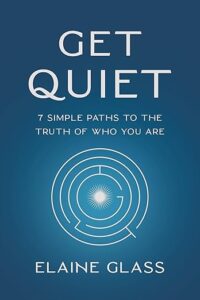
There’s a book about that called Get Quiet. Elaine Glass, who’s in the Genius Network, wrote it—Michael Fishman’s partner.
Oh, I’ve met Elaine.
So you should get quiet more often.
I’m a big band.
I write in my reMarkable tablet every day. I’ve got this thing that is such a life preserver because I’m writing gratitudes to God, and that includes messages that I’m receiving. I’m getting more messages as I’m writing the messages that I’ve already received, and so far, I have 1,912 pages.
Wow. Is that 1912 days or multi-page days?
No, I write a lot of pages per day. It depends on how much I’m dedicating to it. I’ve tried to do about half an hour a day, but if I spend more time, I’m sometimes more connected, and then I get a lot more stuff coming in. I’m also writing about the things that I’m challenged by, and I write that I’m grateful for those. I mean it because I know that there is a bigger picture at play, and God is only benevolent, and these are only for my eyes.
I love that practice. That’s great. And to do it back consistently. Whenever we can find an anchor, routine, or ritual, it tends to go well.
It wasn’t a routine. It was something I dreaded doing, writing in a journal, so I never did it for most of my life. What turned this around was a mindset shift. It wasn’t like I just needed to start a tiny habit and then build on that habit stack and all that. Nope. It was a realization, and that realization was that I need to show my gratitude to God on a daily basis in a meaningful way. Why not that meaningful way be a gratitude journal?
When my sister in law said, “You know, there’s a whole book about thank you for the challenges by Rabbi Shalom Arush.” That’s not the exact title, but that’s the premise of it. I decided, “Well, I should be writing not just about the obvious things that are blessings, but the non-obvious things too, and to really, truly feel gratitude for those as I’m writing them down.”
And then, of course, messages come, and then I was like, “Well, why don’t I be grateful for those too?” Because those are amazing, and then more come in. It just kind of blossomed from that initial mindset shift, where I realized this is a way for me to respect and honor the creator for all that He’s doing for me.
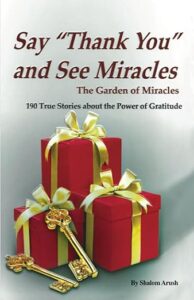
I love that. That’s a very inspiring story. I see some parallels, but I’m drawing some dots for myself that connect as well. I have a different practice, but morning pages from The Artist’s Way by Julia Cameron, and the things that have come out for me while doing that. I’m not a daily practitioner, but probably a few times a week.
You go back and you almost wonder, “Where did that come from? Why did I write that sentence? What was I thinking when I said this?” It’s easy to see that it’s downloading, not necessarily an original thought. So very cool, corroborate that story.
Yeah, we’re all downloading, and we just don’t attribute it to the source. We usually think, “Oh, that was just my idea, or that was just my stinking thinking, if it was not a very resourceful thought.” But we’re just antennas. We’re just receivers tuned into radio stations, and those radio stations could be high vibration, or they could be low vibration, depending on where we’re vibrationally.
We match, or we get matched, to the vibration that we end up hearing in our inner hearing. And we think it’s just our own thoughts. I know we need to wrap up. But I just wanted to also briefly, since we talked about Genius Network, kind of in passing several times, I know you’re a Genius Network member. You’re a Maverick1000 member.
I’ve had both Joe Polish and Yanik Silver, the founders of Genius Network and Maverick, respectively, on the show, and I’m curious why you’re associated with both. I’m in both, of course, and that’s how I know each other, but you’re in both, and they’re different, and I like to hear a little bit about why you’re in both, and what you see are the differences and the similarities, and maybe a story or something too.
For me, it’s about being around entrepreneurs and people who see the world through an abundant and maybe optimistic lens. And I think I get that from members of Genius and from members of Maverick, maybe in slightly different ways. I think Genius is a little bit more about anything’s possible in the professional world, and if you apply curiosity. My two favorite traits for entrepreneurs are creativity and curiosity, and for me, Genius is all about leaning into those two ideas.
What are new, unique, novel ways to look at the world that other people aren’t seeing? A buddy of mine recently said that when you bring entrepreneurs together, we all have three or four playbooks that we use to solve problems, and I’m going to apply my three or four playbooks to pretty much any situation. You’re going to apply yours and yours and mine might be similar, but they’re obviously going to be different.
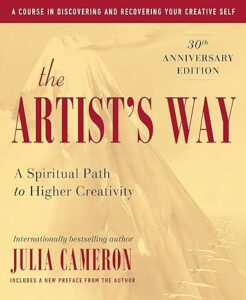
Somebody else might have completely different ideas about solving problems, and when you bring groups together, invariably, you’re bringing all those different playbooks together, and the novel combinations of everyone’s different kinds of views can create something completely new and unique and exponentially bigger than either yours or mine in a vacuum. I get that from Genius, and I get it from Maverick.
I think in Genius, it’s a little bit more around professional, financial marketing, the mechanics of business. I think with a heavy dose of personal, a heavy dose of spiritual, and a heavy dose of Joe’s. One of his favorite sayings is, “Sell people what they want, but give them what they need.” In Maverick, I think it’s for all the same reasons: playbooks, connections, networks, pattern recognition, and peer groups.
I believe there’s an amplified power in being together, physically, in proximity, not even on screens. But Maverick skews, to me, more towards that anything’s possible on the spiritual and magic side of the world with a heavy dose of business. They’re kind of at—not opposite ends of the spectrum. I think there’s a ton of overlap in the middle, but one is more professionally focused than the other.
I’ll just use a simple word and say it’s more personally focused, with an unbelievable amount of overlap across the center. That’s what I get. And Maverick, maybe a lot more people who are spiritually oriented. So I get their lens, and their lenses can be really unique in the world. Jackie, who recommended that I read Letting Go, came through Maverick, and I credit that recommendation, as well as some of the things I learned there, with being some of the factors that helped me turn around a pretty dire health crisis. So that was a Maverick thing.
I could have gotten that same recommendation in Genius. So there is a lot of overlap in the center, but Jackie used her playbook to solve my problem, and it was a playbook that I didn’t have, that came at the perfect time, in the divine moment to me that then I had to take action on, which is how all this works. But had I not been in Maverick, I never would have had that framework. And it’s interesting.
I look at us as entrepreneurs, and we live on a really, really lonely island. Most of our peer group, friends, family, and all the people we grew up with live in a completely different universe, and they haven’t been exposed to all these different ideas. And I really appreciate it when someone’s going through a crisis or a challenge or an opportunity, or they have a limited ability to navigate things.
I mean this, not just for my family and friends, but also because they haven’t been exposed to alternative ideas. They haven’t been exposed to bigger thinking. They haven’t been exposed to non-traditional playbooks. They struggle to solve problems that, to me, are so elementary and simple. They don’t even rise to the level of any mental strain to think about and solve. And for my friends and family, some of these things are impossible to solve.
We take that for granted, I think, and we don’t realize it until we step outside of our isolated, lonely island to the broader picture. I see people struggle with things in the broader world that are so fundamentally simple that they just haven’t been exposed. So I can’t get enough patterns and exposure to different thought processes and ideas. That’s why I do both.
I’ve done Strategic Coach, industry work, and a variety of other things in the past. I think they all bring their own subset of playbooks.
For me, both are incredible groups, and both are life-changing. I actually did get my second spiritual awakening, in part because of two different couples in Genius Network that said certain things to me, suggested certain books or videos or said something in an interview that changed me and led to an awakening. However, the thing that we always need to remember is that this is all a divine setup. It’s a rigged game. So your friend in Maverick you and she had a soul contract before you even incarnated like, “Hey, I’m going to show up, and you better pay attention when I give this recommendation to you, and I’m just going to show up, I’m waiting on the sidelines for the right moment to enter the scene in your movie. I’m going to tell you about this book, and you better read it.”
“And lucky you, I’m going to show up five different times.”
“Because you’re kind of a slow learner sometimes.”
I like to say I’m thick. I totally agree. It’s funny as I think about it, I told Mackenzie’s story that Steven Kotler’s connection came through the Genius Network. So here’s a business group that, the single most important piece of information I’ve ever accumulated came from that saved our daughter’s life. No doubt about it, she was not going to be with us if we didn’t intervene the way that we did, and from Genius Network, who would connect those dots.
Again, it’s a divine setup where it doesn’t matter where it comes from, because it’s meant to be. It’s written into the story, into your movie.
You just have to recognize when actions are required and when passivity is required.
You just have to, I think, realize or recognize when actions are required and when passivity is required. So you and I are pretty aligned on that concept.
Awesome. Well, I really appreciate you sharing with such candor, vulnerability, authenticity, love, and grace. You’re truly sharing from the heart, and that’s special. It’s not to be taken for granted. I don’t take it for granted. I know many of my listeners will not take it for granted.
They will truly appreciate hearing this incredible set of stories, and I’m also very grateful to God for saving you and your daughter, and for showering you with all the blessings you’ve received. You’re special, and you deserve it. You deserve that special attention from the heavens.
Thank you. Yeah, we have some work to do in the world now to pay that forward. So, we’re on it. And this is probably a perfect close. And Mackenzie went to hell and back many times on her journey. And, yeah, it’s got, you know, it’s certainly not the ending, but it’s at a very happy moment in time.
Had she not been on the path that she’s on, she was amazing things in the world, but she will be a resource for young women in a way that none of us can even comprehend based on the fact that she took her path with grace and elegance and found the gifts in the worst days of all, and now wants to help other young women on their path. So from a divine perspective, you can’t say it much more succinctly, I think, than that.
Well, thank you, John. Thank you, listeners. That’s a better world because you guys are in it. We’ll catch you next episode. Have a fantastic week. I’m your host. Stephan Spencer, signing off.


